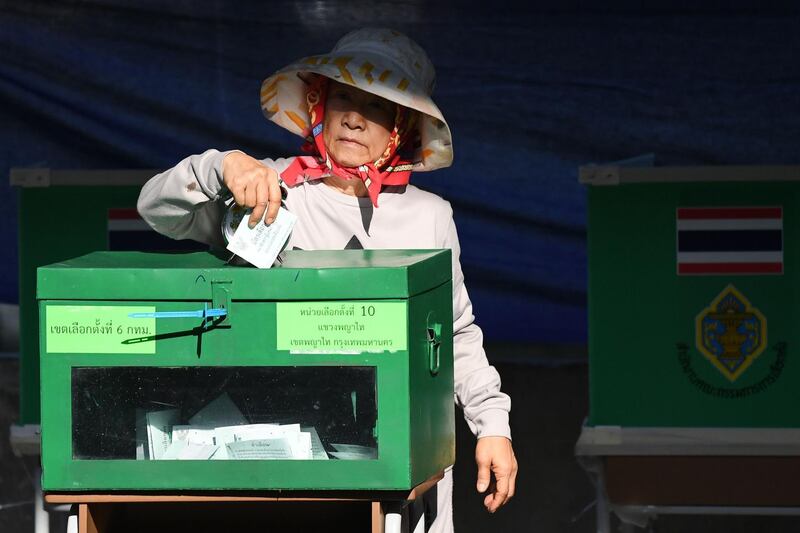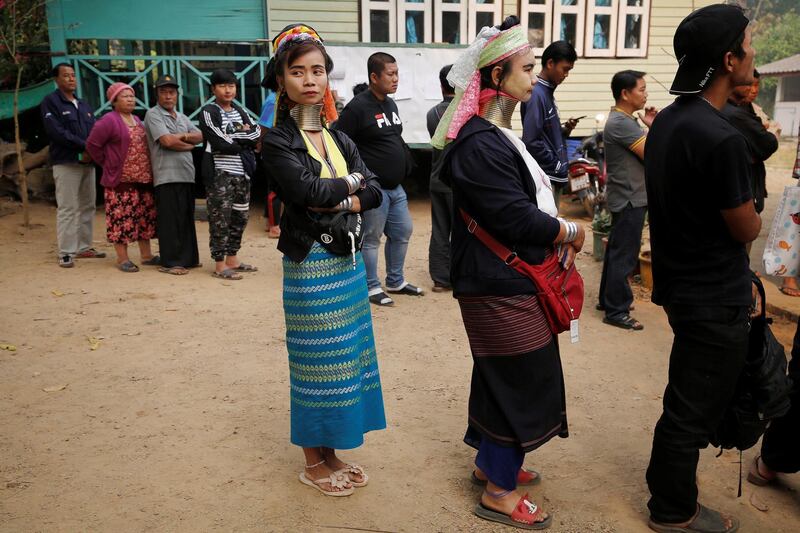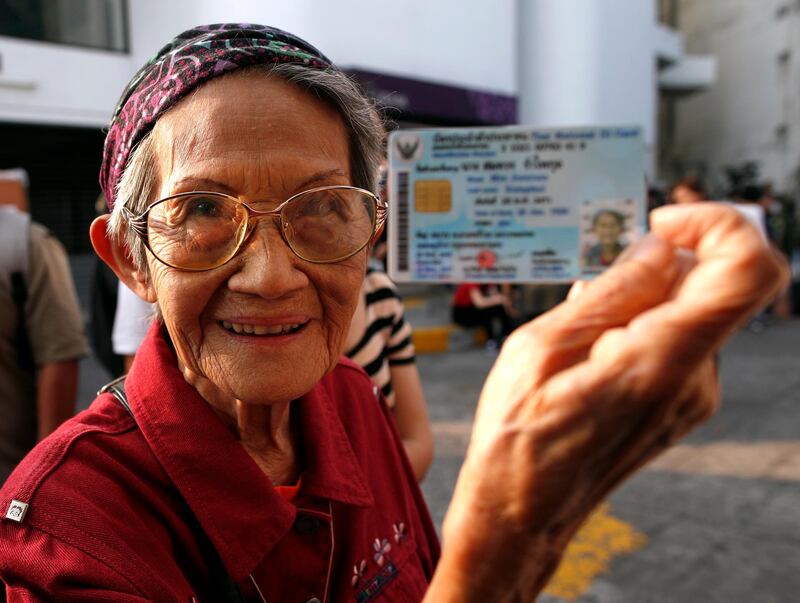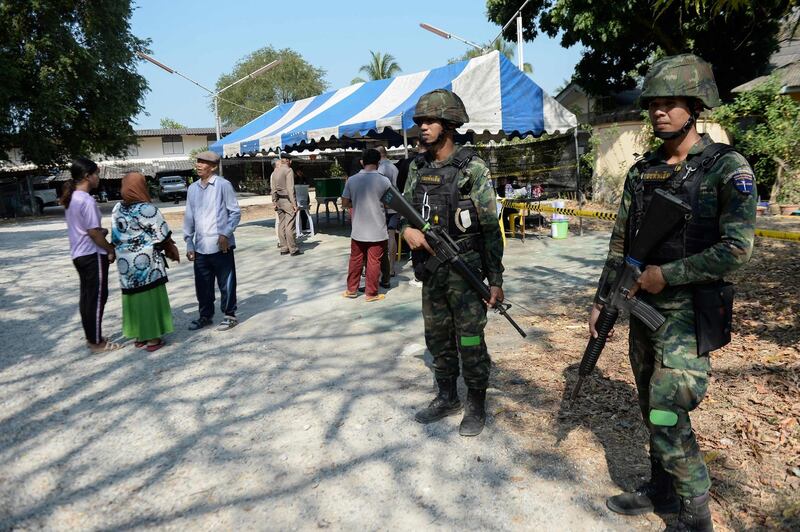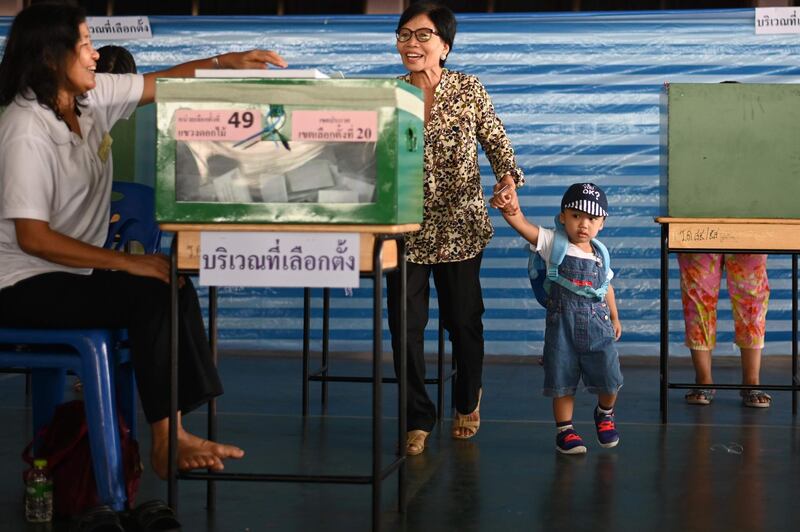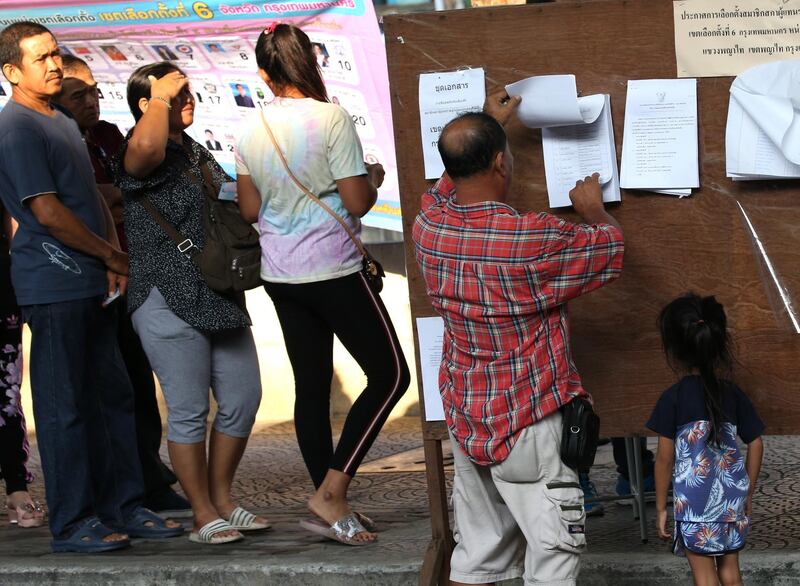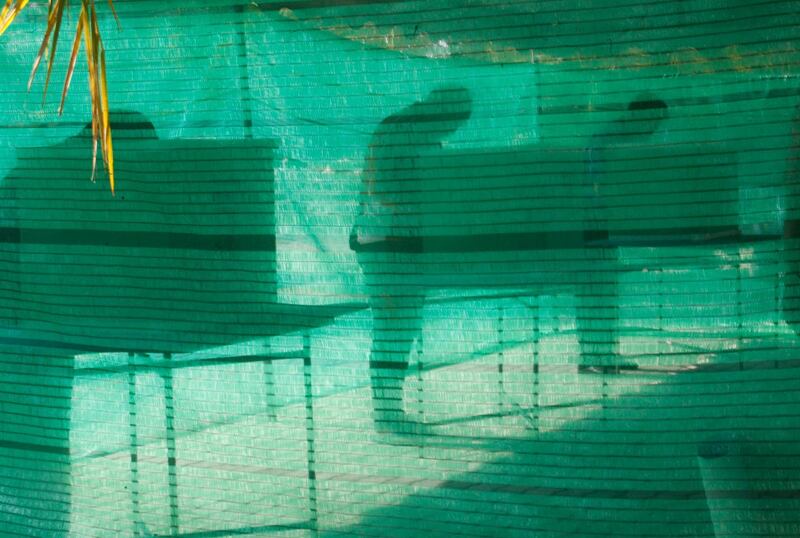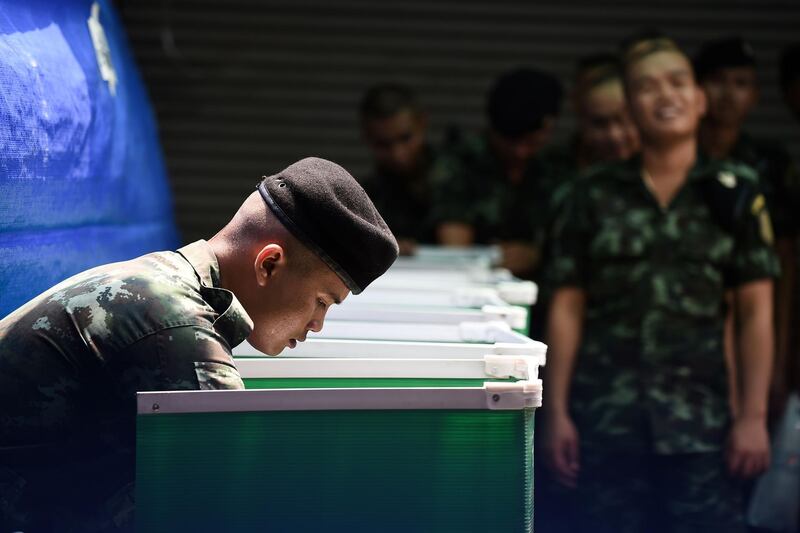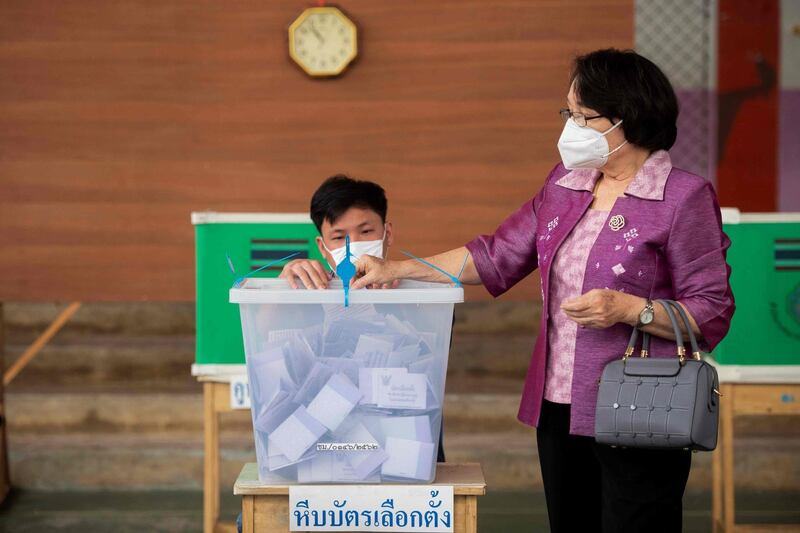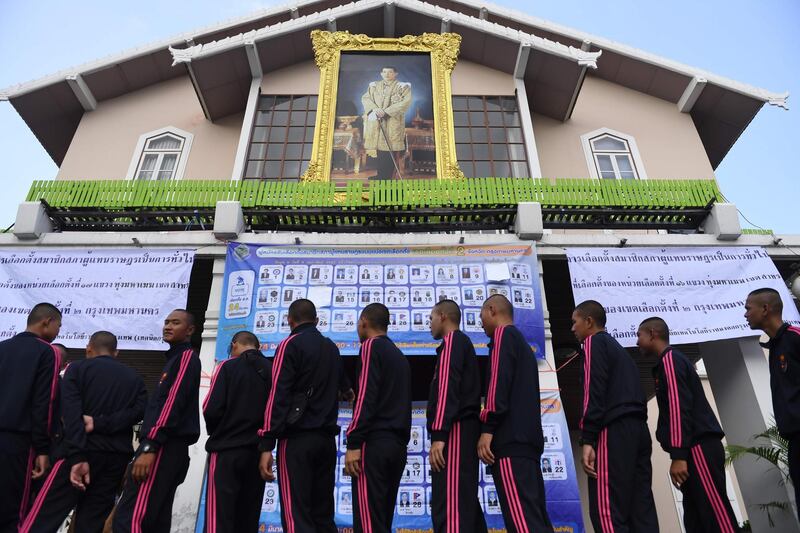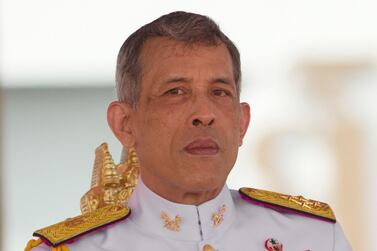Thailand's ruling junta took an unexpected lead in the country's first election since a 2014 coup, putting it on course to return to power at the expense of the kingdom's pro-democracy camp.
The army-linked Phalang Pracharat party, which wants junta chief Prayuth Chan-Ocha to return as premier, gained more than 7.3 million votes with 91 per cent of ballots tallied, according to the Election Commission, nearly half a million more than the Pheu Thai party of former premier Thaksin Shinawatra.
While Sunday's election was held under new laws written by the military to smooth its transformation into a civilian governmen, analysts had not expected Phalang Pracharat to win the popular vote, given mounting anger at junta rule and the enduring popularity of Mr Thaksin.
The EC said it would announce full results on Monday, including the numbers of lower house seats won by each party. It may take weeks to certify the tally, form the expected coalition government and pick a premier.
Exit polls had showed Pheu Thai winning 163 seats compared to 93 seats for Palang Pracharat, but not enough to form a majority government.
About 51 million people headed to the polls on Sunday after nearly five years under a military government.
Mr Prayuth is backed by the royalist and military elite, who have long duelled for power with Mr Shinawatra, who was overthrown in a 2006 coup and lives in exile after being convicted on corruption charges.
Mr Thaksin or his allies, who draw support from the rural poor, have won every election since 2001, only to be unseated by coups or the courts. His sister, Yingluck Shinawatra, was overthrown in 2014 led by Mr Prayuth and also lives in exile.
The contest between these dominant forces played out again in the latest election. Late on Saturday, Thailand’s King Maha Vajiralongkorn released a rare statement that in effect asked citizens to back “good people” for government in the interests of national stability.
The Palang Pracharat party wants to keep Mr Prayuth as prime minister but would also need coalition partners, although it would have a better chance due to junta-written electoral rules that favour it.
The exit poll was conducted by Thai research center Super Poll and televised on local channel Thai PBS immediately after voting closed at 5pm.
“I hope this election is a good step forward for the country after being hindered by political conflict,” Veerawat Srisingh, a 21-year-old worker at a logistics company said after casting his vote in a suburb of Bangkok. “I’m so glad that I am able to vote for the first time.”
The vote took place under a military-backed constitution, Thailand’s 20th. Critics say the charter gives appointed soldiers and bureaucrats in a planned 250-strong Senate the power to stifle elected politicians in the 500-seat lower house.
The establishment is trying to extend and “legitimise its power” through the election and the constitution, said Punchada Sirivunnabood, an associate professor at Mahidol University’s Faculty of Social Sciences and Humanities near Bangkok.
Once the vote is certified, parliament must convene to elect a premier. A candidate needs a majority in a joint vote of both chambers to become prime minister. That potentially gives Mr Prayuth a major advantage if the junta-appointed Senate backs him en bloc.
At the same time, the deep divisions in Thai politics could also bring gridlock to the legislature. The splits – which triggered bloody street clashes before the 2014 coup – flared anew in a dramatic run-up to the vote.
A Thaksin-linked party, Thai Raksa Chart, was disbanded earlier in March for hostility towards the constitutional monarchy, after the king rejected the party’s nomination of his sister Princess Ubolratana Rajakanya as its prime ministerial candidate.
The dissolution by the Constitutional Court was seen as hampering the allies of Mr Thaksin while bolstering Mr Prayuth.
The uncertainty around the election could weigh on the export and tourism-reliant economy, whose growth lags behind peers in the region.
Thailand is already grappling with risks from a surge in the baht amid slowing global trade. Unsettled foreign investors have pulled out in excess of a net $700 million (Dh2.6bn) from Thai stock and bond markets this year.
